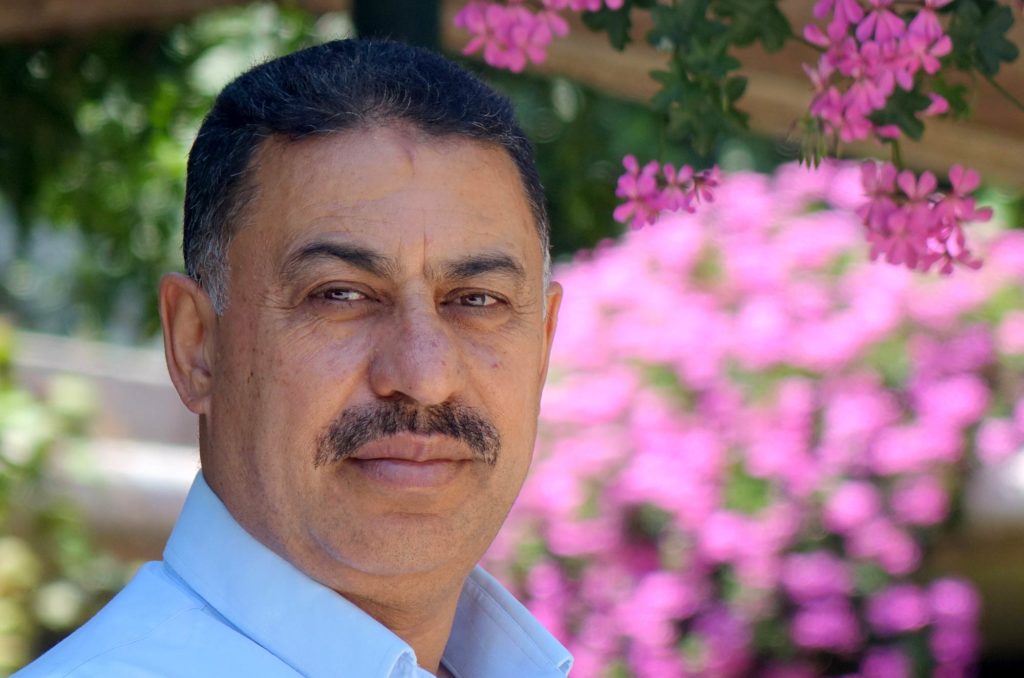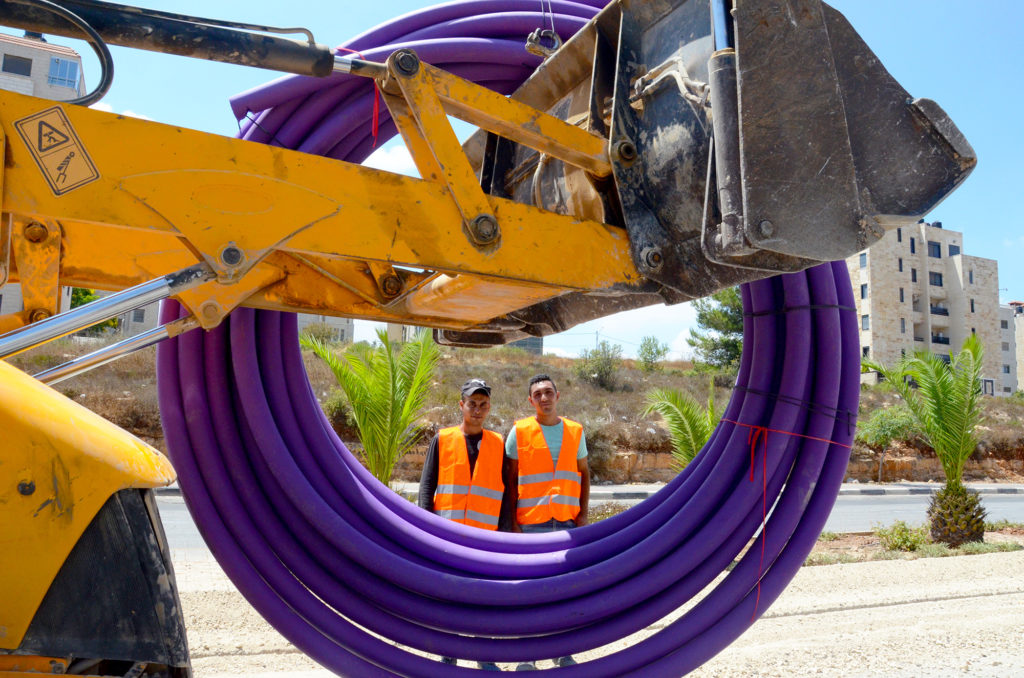Apr, 2007
A West Bank oasis near the town of Jericho has provided water for local farmers for thousands of years.
Thanks to Anera’s irrigation relief aid project, farmers are reaping even more from the ancient resource. Jericho has depended on the water springs flowing downhill from Jerusalem and Ramallah for millennia. Over the past decade, the largest of these springs, Ein Al-Sultan, has become modernized through the Ein Al-Sultan Spring Irrigation project. The spring, which provides a flow of water year-round, has been connected to an advanced water distribution and water irrigation system that benefits all of Jericho’s farmers and residents.
Anera program manager Mazen Dabbagh explains how. “Before this irrigation system was implemented, water was distributed on a time-based system. Farmers would receive a water irrigation flow from the springs for a certain amount of time based on their water rights.” He says a farmer could either immediately use the water he received or store it for later use in a pond. The old water irrigation system consisted of open canals. The main irrigation canals were concrete-lined, while many of the secondary canals were earthen. Mr. Dabbagh says the canals were deteriorating and losing a lot of the water to leaks and evaporation.
Palestinian water authority experts estimated the water losses at 35 percent. During the summer season very little reached the main canals, making it nearly impossible for farmers to properly irrigate their crops—a devastating issue for West Bank agriculture.
The Ein Al-Sultan Spring Irrigation project replaced inefficient canals with 45 kilometers of new pipes, hydrants, valves, pumps, and stand-by generators. The system has been converted to a pressurized system, increasing the overall efficiency. As a result, farmers have access to a greater supply of irrigation water.
The project includes a state-of-the-art pumping facility located at the spring’s source and a network of meters to measure water usage. “We are saving 1.2 million cubic meters of water per year,” said Mr. Dabbagh. “Farmers will know exactly how much water they are receiving and benefit from every drop.”
Local farmers like Juma’a are planting cauliflower, eggplant, tomatoes, cabbage and other delicious fruits and vegetables in Jericho’s famous, fertile soil. ”The system is better because we always have enough water now.” It constantly flows and I’ve been able to plant more of my land.”
The irrigation project was funded by the International Fund for Agricultural Development, and carried out in cooperation with the Jericho municipality.
The Ein Al-Sultan Spring Irrigation Project is the first of its kind on the West Bank. Anera also helped establish a water users’ association to maintain the irrigation system and ensure farmers are charged a fair rate for usage. The project has set a standard for how to best introduce, develop, and manage a new irrigation system. Its successful implementation can serve as a model for the modernization of future systems in the West Bank and Gaza.


